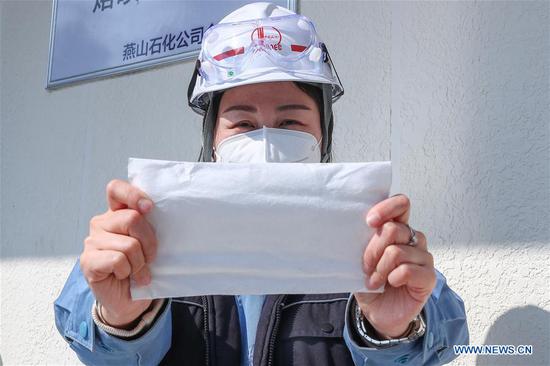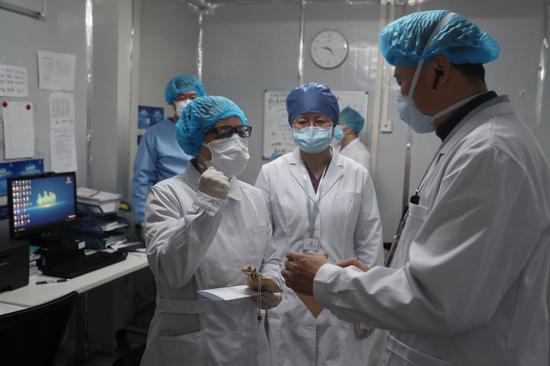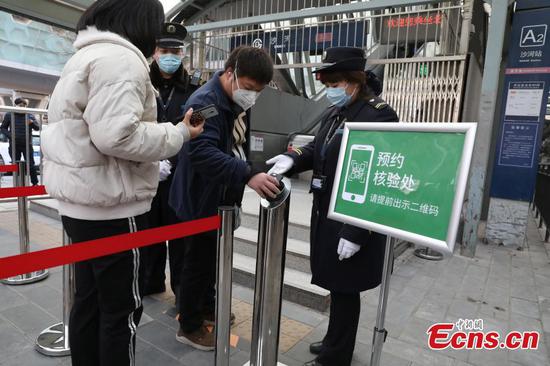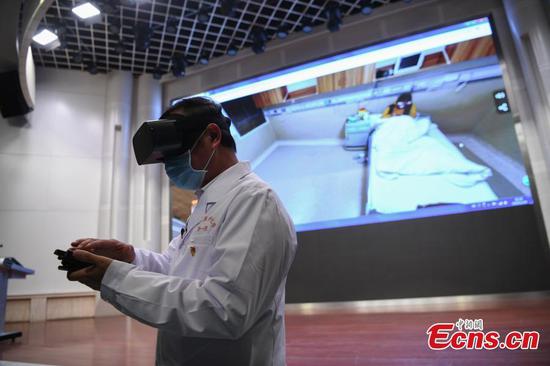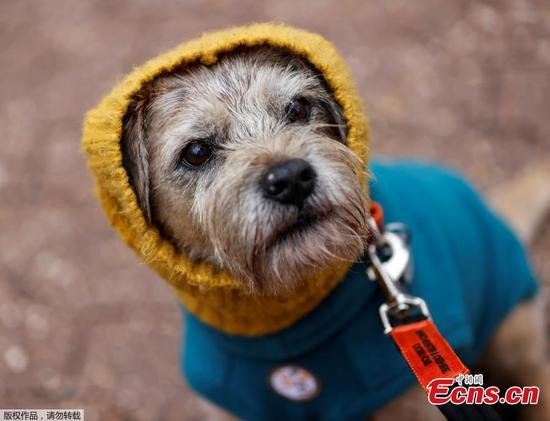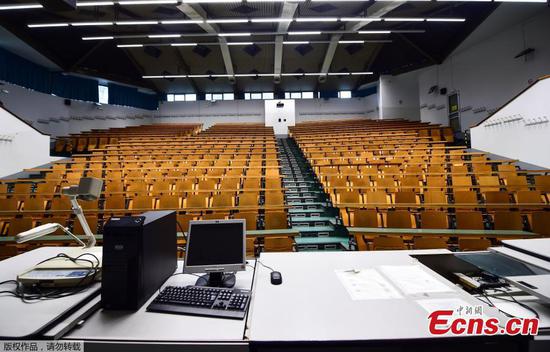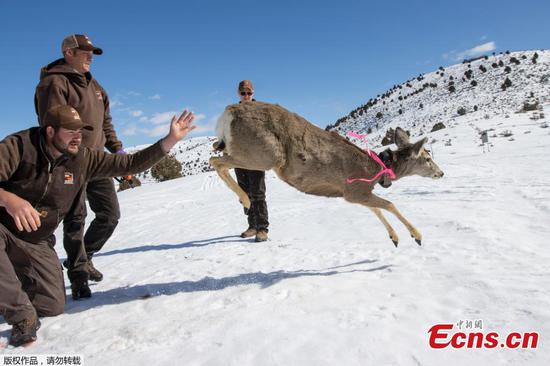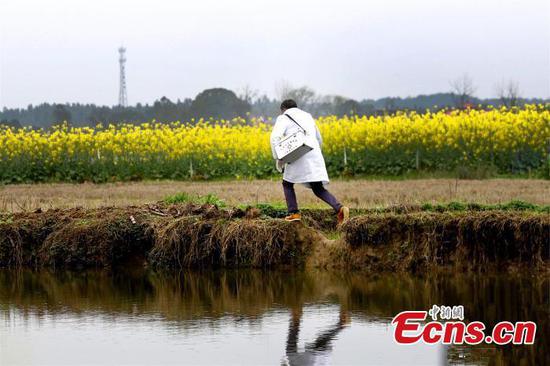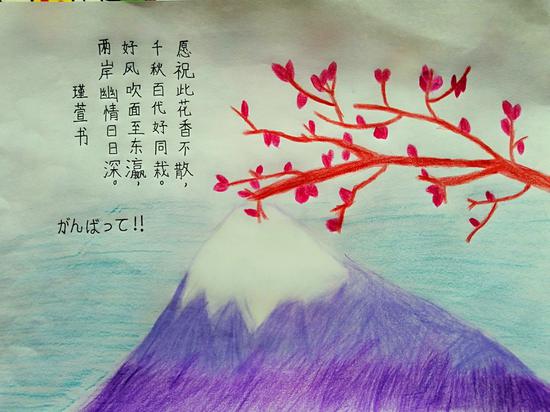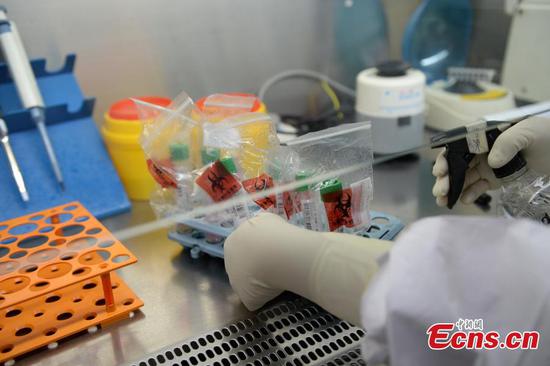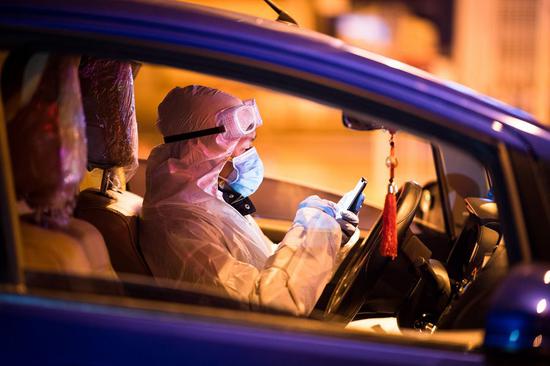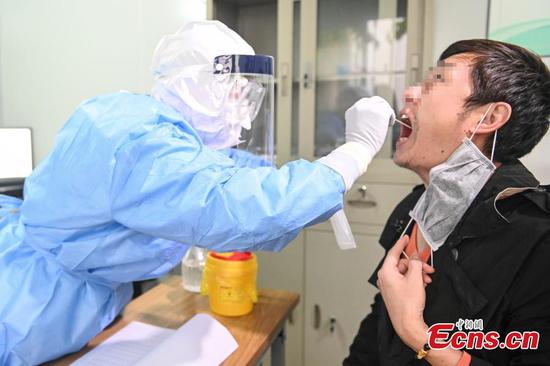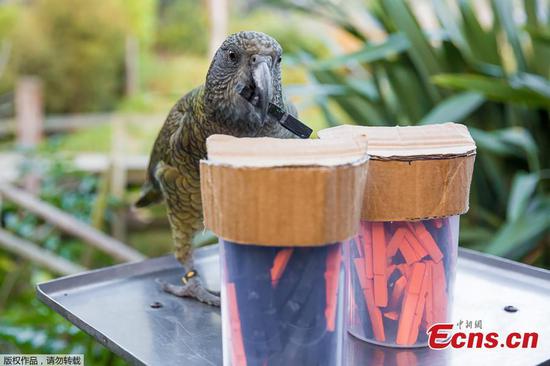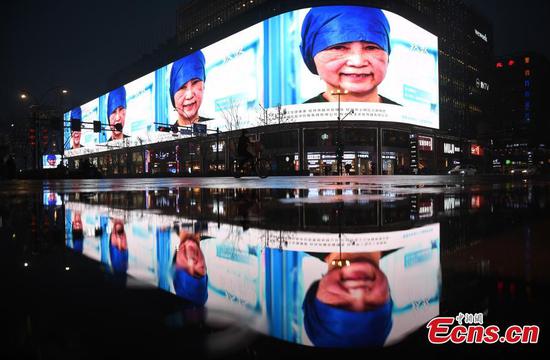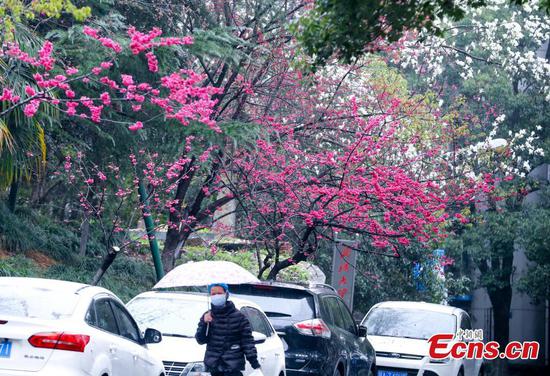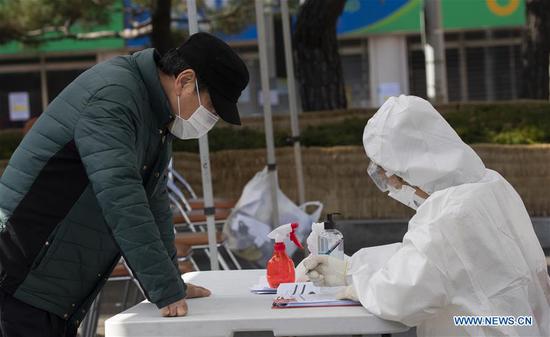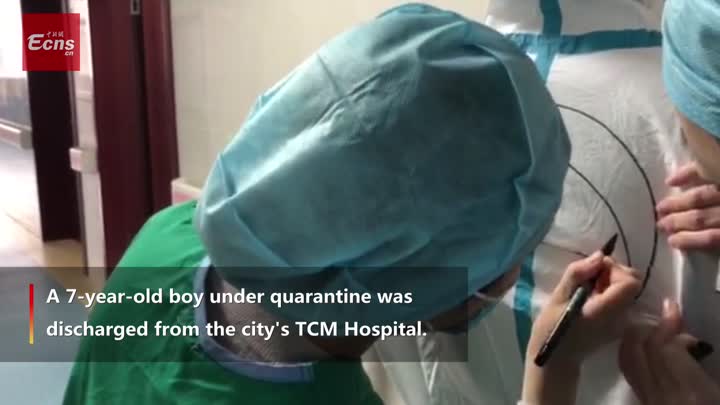First-time experience
More than half of the team of 138 medical workers sent by the Beijing municipal government to Wuhan are female. Since late January, the Beijing team has treated more than 300 patients, 90 percent of whom were in serious or critical condition, according to the medical team.
Instead of working in the isolation wards, as Ji had expected, she was assigned an administrative role, including taking charge of the 93 nurses from the Beijing medical team.
"Unlike many medical workers from Beijing, who have had experience in fighting severe acute respiratory syndrome, many medical workers in the Wuhan hospital had no idea of how to treat infectious diseases properly," she said.
"We provided them training such as how to wear and take off protective gowns, and displayed the whole procedure on the wall so they could follow it. But everything had to be done in a hurry as there were so many patients to cope with."
In the following days, Ji had been engaged in different tasks, including coordinating between different departments and making nursing procedures and standards.
Wang Yansen, head of the medical team organized by the China-Japan Friendship Hospital in Beijing, said 162 medical workers from the hospital had been sent to Wuhan, and 124 of them are women.
An Shuoyan, a doctor of cardiovascular diseases sent by the hospital to work at a temporary hospital in Wuhan specially built to treat coronavirus patients, said like most of her colleagues, they had not worn a protective suit before arriving in Wuhan in early February.
Although she and her colleagues received training on wearing protective suits right after their arrival in Wuhan, and they were well prepared before going to the temporarily built wards to see patients, they had to remain alert to dangers such as nails in the floor that could damage their protective clothing, An said.
Wu Zhongyan, a critical care nurse from Beijing Geriatric Hospital, said compared with her male colleagues, many women have characteristics such as sensitivity and consideration, which make them especially suitable as intensive care nurses.
Although she worked in the hospital in Beijing for 10 years, Wu said she had seldom worn a protective gown because most of her patients back in Beijing were elderly people with chronic diseases.
"We received training for two weeks before arriving in Wuhan on how to protect ourselves in the intensive care wards," she said. "Although I was at first a little worried before I entered the intensive care wards to treat critically ill coronavirus patients, my fears vanished once I put on my protective clothing, and all that was in my mind was how to treat the patients."
Wu, who is mainly in charge of two critically ill patients in an intensive care ward at Wuhan Union Hospital, said in addition to providing medical care, she also provides daily care such as feeding, cleaning patients' bodies and massaging.
Fighting spirit
Ji, the chief nurse, said the nurses initially worked six-hour shifts without taking a break.
"Their bodies were totally wet when they removed their protective clothing after work. Some of them passed out at work."
Later the hospital changed the shift to four hours at Ji's advice, she said.
With the efforts of the doctors and nurses, the condition of the patients at the hospital has kept improving, with patients recovering and leaving hospital almost every day, Ji said.
Ji experienced the tough period of fighting SARS in 2003, but this time she was much better equipped emotionally to deal with the situation.
"I feel sorry for my husband, as I have had to leave our son in his care during two important periods," she said. "My son was just 10 months old during the SARS outbreak, and now he is 18 and preparing to enter college this summer."
"Back during the SARS outbreak, I burst into tears every time I heard my son on the phone," she said. "But this time I have become much more stable, and I just told my son to keep studying hard for the college entrance exam."
For Wu, although this has been the first time for her to provide medical care outside Beijing, she said she does not worry about her family back in Beijing, as they all supported her decision to go to Wuhan.
"I am most comforted by my 6-year-old son. Every time we chat he tells me to be strong and says he will protect me," Wu said. "I know my husband is worried about me, as what he says most to me is to tell me to take good care of myself."









